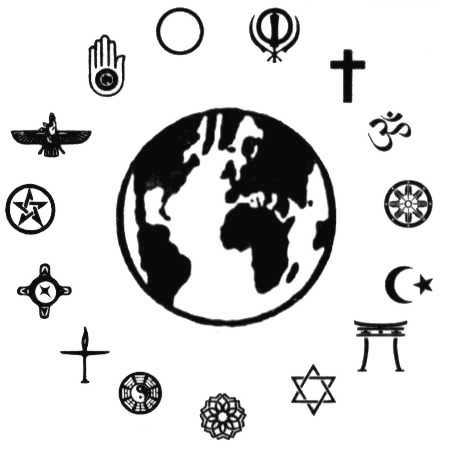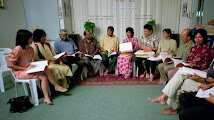Intention - caring for the environment
The results of this study, as reported on the Stanford University website, would underscore the importance of learning to recognize the good (and NOT the bad) intentions in others' actions (i.e. their virtues).
Cooper said, "...our questions about someone’s intentions determine how we react to outcomes"...
The finding comes from the work of Jeff Cooper, who spent his time as a Stanford doctoral candidate studying a part of the brain called the ventromedial prefrontal cortex. Scientists already knew the region is stimulated by personal rewards, but Cooper wanted to see if it also reacts to the actions of others...
Cooper – who is now a researcher in Trinity College, Dublin's Institute for Neuroscience – had two groups of participants at Stanford watch people play a financial game. The players were given a bit of money and told to pitch in as much as they want to a common pot, which Cooper and his colleagues doubled. At the end of the game, the money was evenly split among the players.
The only difference between the groups of observers involved how the actions of the players were described. One set of subjects was told the players were engaged in a "stock market game," where their decisions could result in personal loss or gain. The other subjects were told they were watching a "public goods game," where the players could help everyone make more money.
While the activities and strategies of the players were consistent when both groups of observers watched them, the test subjects had quite different feelings about them.
Tracking their brain reactions using specialized MRI scans, Cooper and his fellow researchers could tell that watching people play the “stock market" game didn't incite much activity in the ventromedial prefrontal cortex.
But when it came to watching the players in the so-called "public goods" game, activity in that brain region fired up.
Those who gave generously to the common pot were met with brain signals showing positive emotions, suggesting the observers really liked those players. And players who withheld contributions were regarded with disdain.
"The test demonstrates that what people do doesn't really matter all the time," said Brian Knutson, an associate professor of psychology and neuroscience who co-authored Cooper’s paper. "What we think others are intending is what really matters. Essentially, even though people saw the exact same game, framing the game changed the test subjects’ neural reactions to the players."
Read the full article here.
Dicta: It is the spirit that moves us that counts, not the act through which that spirit expresses itself; and that spirit is to serve the Cause of God with our heart and soul.
(Shoghi Effendi through his secretary, in Living the Life, ##1276)
Throughout the world there are innumerable meetings and assemblages, more or less important according to their measure of contribution to human betterment, yet limited in their purpose and object to material questions and outcomes....
This meeting of yours tonight is very different in character. It is a universal gathering; it is heavenly and divine in purpose because it serves the oneness of the world of humanity and promotes international peace. It is devoted to the solidarity and brotherhood of the human race, the spiritual welfare of mankind, unity of religious belief through knowledge of God and the reconciliation of religious teaching with the principles of science and reason. It promotes love and fraternity among all humankind, seeks to abolish and destroy barriers which separate the human family, proclaims the equality of man and woman, instills divine precepts and morals, illumines and quickens minds with heavenly perception, attracts the infinite bestowals of God, removes racial, national and religious prejudices and establishes the foundation of the heavenly Kingdom in the hearts of all nations and peoples. The effect of such an assembly as this is conducive to divine fellowship and strengthening of the bond which cements and unifies hearts. This is the indestructible bond of spirit which conjoins the East and West. By it the very foundations of race prejudice are uprooted and destroyed, the banner of spiritual democracy is hoisted aloft, the world of religion is purified from superannuated beliefs and hereditary imitations of forms, and the oneness of the reality underlying all religions is revealed and disclosed. For such a meeting is established upon the very foundation of the laws of God. Therefore, in its constraining spiritual bond it unites all religions and reconciles all sects, denominations and factions in kindliness and love toward each other. In this way and by the instrumentality of such a gathering the causes of animosity, hatred and bigotry are removed, and enmity and discord pass away entirely. Every limiting and restricting movement or meeting of mere personal interest is human in nature. Every universal movement unlimited in scope and purpose is divine. The Cause of God is advanced whenever and wherever a universal meeting is established among mankind.
Therefore, endeavor that your attitudes and intentions here tonight be universal and altruistic in nature. Consecrate and devote yourselves to the betterment and service of all the human race. Let no barrier of ill feeling or personal prejudice exist between these souls, for when your motives are universal and your intentions heavenly in character, when your aspirations are centered in the Kingdom, there is no doubt whatever that you will become the recipients of the bounty and good pleasure of God.
This meeting is, verily, the noblest and most worthy of all meetings in the world because of these underlying spiritual and universal purposes.
('Abdu'l-Bahá, Promulgation, 447-8)
Photo Copyright Bahá'í International Community. View here.
Found this interesting? Feel free to subscribe here!

Brain Hard Wired to Read, Interpret Intentions
Share



















